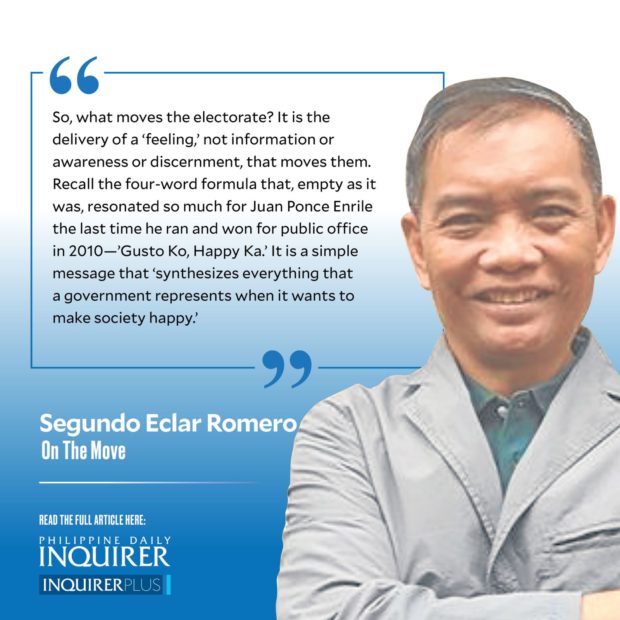‘I want you to be happy!’
What made Ferdinand Marcos’ New Society last was the immediate buy-in of a significant segment of the country’s elite, who dedicated their talent, expertise, and experience to elaborate on the vision of the New Society and push it into reality.
In sometimes cruel hindsight, this elite response to martial law is now derided as complicity. But there was honest belief in the New Society at the start. We had Filipinos like Carlos P. Romulo, already world-renowned at that time, who lent his prestige and credibility to the New Society, serving as Minister of Foreign Affairs. Onofre D. Corpuz, president of the University of the Philippines, Minister of Education, and president of the Development Academy of the Philippines, was arguably the most eloquent and profound theoretician of the New Society. Many of the initial ministers of the Marcos Cabinet were acknowledged leaders in their fields.
Article continues after this advertisementIt was the suspension of disbelief, and the willingness to give the New Society vision a chance by brilliant technocrats, bureaucrats, and politicians, that gave the New Society the inertia at motion that, despite its undeniable signals of corruption, profligacy, and impunity by 1977, allowed it to limp along until it was run over by the Edsa People Power Revolution in 1987.
History has shown that those ideas were corrupted in their implementation, and after the assassination of Ninoy Aquino in 1983, the Marcos regime became a carpetbagging operation to plunder the nation’s wealth by the dictator and his cronies.
In campaigning for the May 2022 elections, the vision, the ideas, the songs, the slogans of the New Society are being repurposed by Ferdinand Marcos Jr. The message is simple — he will resume the “Golden Age” of the Philippines under his father that had been unceremoniously interrupted by the Edsa People Power Revolution. There is no need — indeed it is dangerous — to offer details of the repurposed “Golden Age” vision and of a Cabinet line-up to rise from the ashes of the Duterte administration. The strategy is to let the software of martial law create a sense of vicarious nostalgia among generations that did not experience martial law. Digital technology can burnish the family brand name to inflate the vote bubble.
Article continues after this advertisementRecent political surveys suggest that a large portion of the electorate is not in the mood or in a position to parse micro-promises and micro-commitments by the presidential and senatorial candidates fanning out to the countryside. The candidates manage to direct these messages at token individuals and communities meant to represent the base of the pyramid.
As the Duterte regime ends with a disappointing whimper, there is less reason to be hopeful. The people are lost and afraid, and no amount of instructions for the right directions going forward will give them confidence, especially if there are six or so versions of those directions. They want to retrace their steps to a past that seemed to provide some feeling of stability.
So, what moves the electorate? It is the delivery of a “feeling,” not information or awareness or discernment, that moves them. Recall the four-word formula that, empty as it was, resonated so much for Juan Ponce Enrile the last time he ran and won for public office in 2010—“Gusto Ko, Happy Ka.” It is a simple message that “synthesizes everything that a government represents when it wants to make society happy.” At the moment, the candidate who campaigns with hundreds of retro-fake weblinks to the past is ahead in the political surveys.
This trend is reversible. If it is a coherent, believable story of hope for the future that the Filipino electorate yearns for, there is time for the vying presidentiables to build and tell that story of a Filipino nation on the move forward. But they must tell a story of a future that is hopeful, but believable. It must be a story with a sufficient runway for takeoff, capable of soaring above and beyond current tactical conflicts. That future, to me, is the year 2032, ten years hence. Happiness for Filipinos in 2022 depends on such realistic stories of national hope.

















